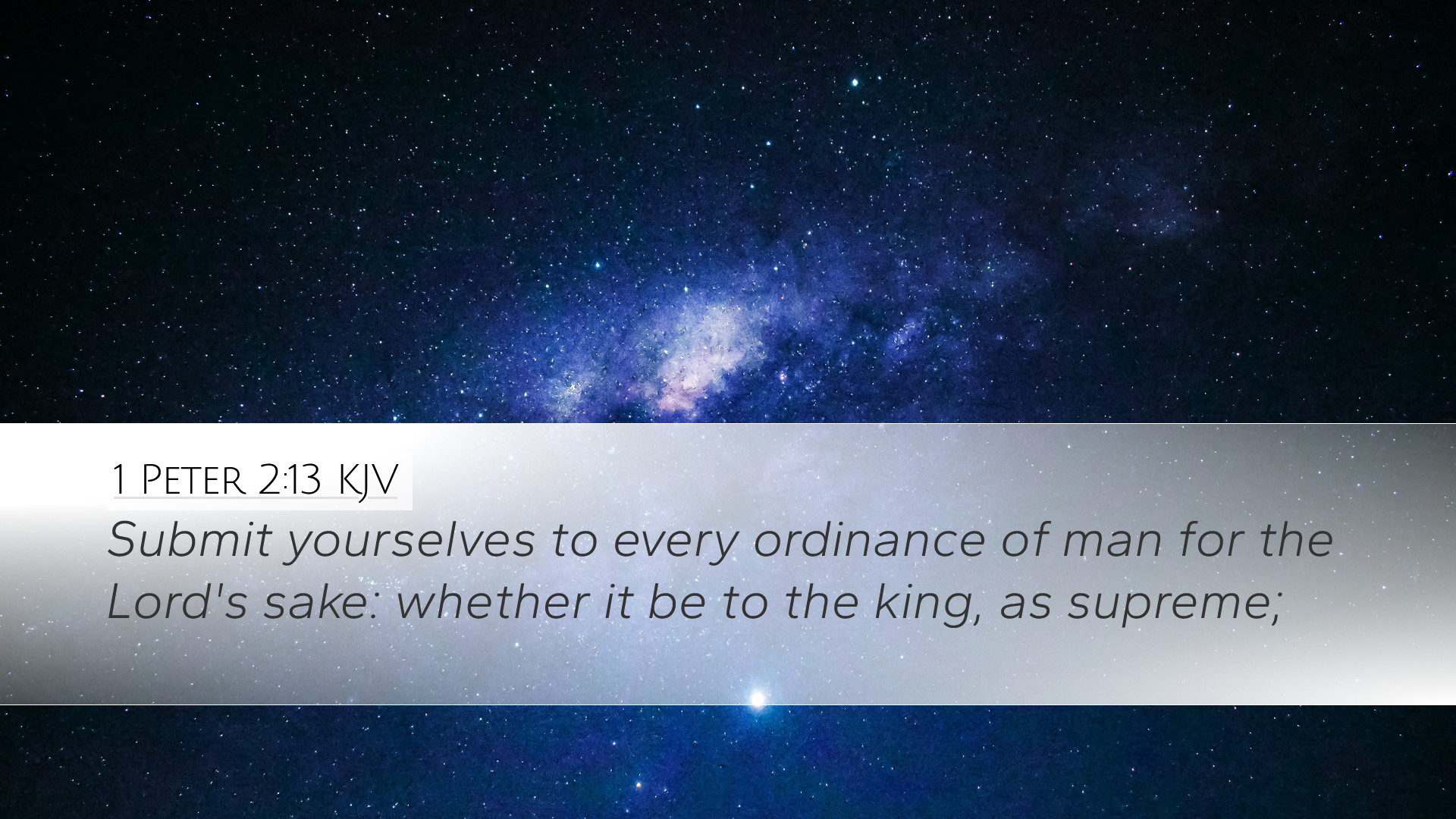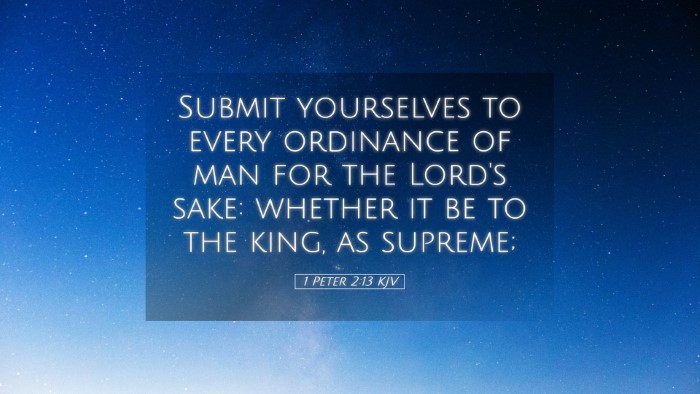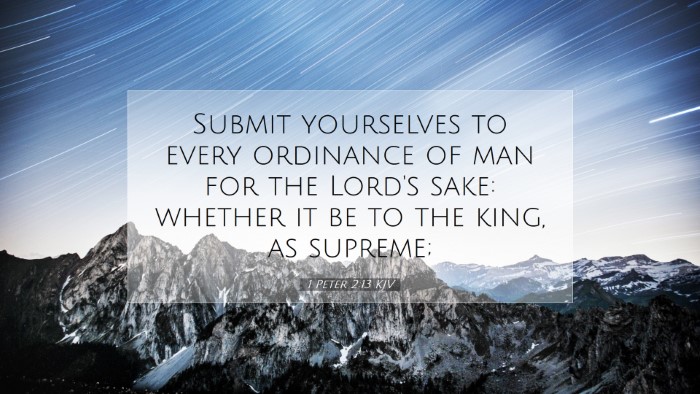Commentary on 1 Peter 2:13
1 Peter 2:13 states, "Submit yourselves for the Lord’s sake to every human authority: whether to the emperor, as the supreme authority." This verse serves as a crucial exhortation for Christians regarding their relationship with civil authorities. The commentaries of Matthew Henry, Albert Barnes, and Adam Clarke provide profound insights into the implications of this exhortation.
Understanding Submission to Authority
Matthew Henry emphasizes the call for submission as a means of honor and respect to God. He explains that submission to authority is not merely a civic duty but is deeply rooted in the understanding of God’s sovereignty over human institutions.
Henry articulates that submission is not conditional upon the goodness of the rulers, but rather it is an expression of obedience to God’s ordained order. He expresses that Christian submission is done "for the Lord's sake," highlighting that our allegiance ultimately belongs to God rather than human leaders.
The Role of Civil Authorities
Albert Barnes explains the nature and purpose of civil authority. He notes that authority is established by God for the order, peace, and well-being of society. Barnes reinforces that submission to the government is a part of a believer's calling, which reflects the ethical behavior expected from followers of Christ.
- Barnes elaborates on the different forms of authority, including the emperor and local leaders, asserting that all lawful authority belongs to God.
- He underlines the importance of distinction between personal character and rightful authority; believers can respect the office while disagreeing with the individual in power.
Implications of Obedience
Adam Clarke delves into the implications of obedience to civil authorities. He posits that this obedience serves as a testament to the Christian witness in the secular world. Clarke emphasizes that the call to submission must be viewed in light of Christian ethics, which do not advocate for blind obedience.
He notes that the context of submission includes an understanding that Christians are to resist authority when it contravenes the divine commandments, citing Acts 5:29, where Peter states, "We must obey God rather than men."
Theological Reflection
The commentaries collectively encourage believers to navigate the tensions between their loyalty to God and their responsibilities as citizens. They argue that such submission is not a forfeiture of moral rights but a demonstration of trust in God's ultimate authority over human institutions.
Furthermore, the emphasis is placed on the motives for such submission. The act of submission, as highlighted in the commentaries, is intended to reflect a believer’s character and their commitment to the teachings of Christ.
- This highlights a significant theological point: that the spiritual and temporal realms are interconnected.
- As citizens of heaven, earthly obedience serves as a form of testimony to the transformative power of the Gospel.
Conclusion
1 Peter 2:13 invites believers into a reflective practice regarding their interaction with civil authority. The insights from Matthew Henry, Albert Barnes, and Adam Clarke demonstrate that such submission is a complex, yet essential, facet of the Christian life.
The challenge lies in balancing respect for authority with the call to uphold divine truth. Christians, therefore, are reminded that their ultimate submission is to God alone, which informs their conduct in the world, allowing them to shine as lights in a darkened society.


